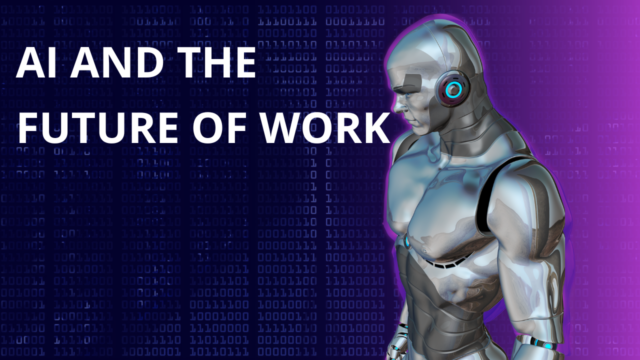Artificial intelligence (AI) is changing the way we work, presenting both opportunities and challenges for the future workforce. As AI technology continues to advance, it is important to understand the potential impacts on employment and the skills needed for the jobs of the future.
One of the main impacts of on the workforce is automation.This systems can perform routine, repetitive tasks more efficiently and accurately than humans, which can lead to job displacement. However, this also presents opportunities for workers to focus on more creative, high-skilled tasks that cannot be automated. To take advantage of these opportunities, workers will need to acquire new skills and adapt to changing job requirements.
AI is also changing the nature of work itself. With the rise of remote work and the gig economy, AI-powered platforms are connecting workers with employers in new and innovative ways. This presents opportunities for flexible work arrangements and entrepreneurship but also raises questions about worker rights and protections.
To prepare for the future of work, it is essential to invest in education and training programs that equip workers with the skills needed for the jobs of the future. This includes not only technical skills, such as data analysis and programming but also soft skills, such as communication and creativity. Additionally, policies and regulations must be put in place to ensure that workers are protected and supported in the changing labor market.
Moreover, AI can also enhance the productivity and efficiency of workers by providing them with powerful tools and resources. For example, AI-powered software can assist in data analysis, language translation, and decision-making, allowing workers to make more informed and efficient decisions. This can lead to greater productivity and better business outcomes.
However, there are also concerns about the potential negative impacts of AI on the workforce. In addition to the displacement of certain jobs, AI-powered systems can also perpetuate bias and discrimination, especially in areas such as hiring and promotion. There are also concerns about the ethical implications of AI, such as privacy violations and the use of AI-powered surveillance systems in the workplace.
To address these concerns, it is important to ensure that AI systems are developed and implemented in an ethical and responsible manner. This includes designing systems that are transparent and explainable, and that are developed with input from diverse stakeholders. It also involves establishing clear guidelines and regulations to prevent the misuse of AI systems and to protect individual rights and privacy.
In conclusion, It is transforming the future of work, presenting both opportunities and challenges for the workforce. To ensure that the benefits of AI are realized while mitigating its potential negative impacts, it is essential to invest in education and training programs, establish policies and regulations that protect workers’ rights, and develop and implement AI systems in an ethical and responsible manner. By doing so, we can create a future of work that is inclusive, equitable, and prosperous for all.









